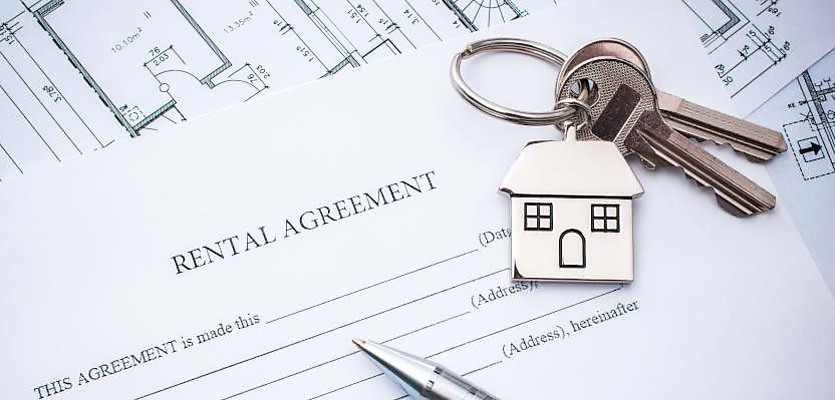Rental properties are being snapped up at accelerated rates across the country, squashing vacancy rates and exerting upwards pressure on rents.
National house rents have added 0.4 of a percentage point over the month to 12 June, bringing the median price to $510, SQM Research data has revealed. The situation is a little more dire across the capital cities, where rents have expanded by a combined 0.5 of a percentage point to reach $559.
As such, the national residential vacancy rate has declined to 1.8 per cent, down from 1.9 per cent in April and 2.5 per cent a year earlier.
Overall, there are now 62,144 vacancies across the nation, with Melbourne and Sydney accounting for the highest number of vacant properties at 22,910 and 21,936, respectively.
Meanwhile, Hobart, Darwin and Canberra had the least number of vacant residential properties at 386, 727 and 880, respectively.
“Rental vacancy rates have fallen across the board in May, driving rents higher,” said SQM Research managing director Louis Christopher.
“This trend is likely to remain through the second half of the year, given the fierce competition for rental accommodation in many areas.”
As vacancies dropped, a majority of the capital cities experienced a lift in house asking rents, except Sydney, which remained stable.
Darwin led the pack with a 3 per cent increase, followed by Hobart with 2.6 per cent, Adelaide with 1.5 per cent, Brisbane with 1 per cent, Canberra with 0.8 of a percentage point, Perth with 0.5 of a percentage point and Melbourne with 0.1 of a percentage point.
“In what is long-awaited news for landlords, the Melbourne and Sydney CBDs’ vacancy rates have fallen, too. Those vacancy rates could begin a downward trend over the second half of 2021, particularly in Sydney, as life resumes relative normality,” Mr Christopher noted.
“However, the loss of international student tenants, along with unit oversupply, will keep vacancy rates relatively high as the COVID-19 pandemic continues.”
Over the year, house rent growth accelerated more rapidly, SQM Research found.
Darwin held onto its crown with an impressive 26.7 per cent annual increase in average house rent — surpassing both the national and capital city averages which stood at 15.1 per cent and 3.9 per cent, respectively.
Perth followed with 16.5 per cent, Canberra with 11.9 per cent, Hobart with 10.7 per cent, Adelaide with 7.7 per cent, Brisbane with 7.5 per cent and Sydney with 3.4 per cent.
Only Melbourne saw an annual decline in house rents of 4.8 per cent.
Canberra and Sydney currently have the most expensive average house rents at $695.9 and $663.1, while Adelaide has the most affordable at $443.3.
Unit market
While house rents are rising across the board, unit rents have more varied movements.
Month-on-month, while the national average rose by 0.5 of a percentage point to $396, the capital city average fell by 0.2 of a percentage point to $410.
Hobart saw the highest monthly increase of 6 per cent, followed by Canberra with a 1.2 per cent rate of growth, Perth with 0.6 of a percentage point, and Brisbane and Darwin with an equal 0.3 of a percentage point.
Adelaide, Melbourne and Sydney suffered declines of 1.4 per cent, 0.5 of a percentage point and 0.2 of a percentage point, respectively.
Over the year, the smaller capital cities took the spotlight, with Darwin achieving a 20.5 per cent increase in unit rents.
Perth followed with 13.6 per cent, Hobart with 13.3 per cent, Canberra with 6.8 per cent, Adelaide with 3.9 per cent and Brisbane with 2.8 per cent.
Sydney declined by 5.1 per cent, while Melbourne clocked a double-digit fall of 11 per cent.
Due to its big decline, Melbourne’s average unit rent is now the second most affordable in the country at $360.5, right behind Adelaide with $329.2.
On the other hand, Canberra currently has the most expensive average unit rent at $498.5, followed by Sydney with $452.3.
How much do you need?
Depending on which capital city you choose to rent in, here’s an indication of the average asking rents:
Sydney
House: $663.1
Unit: $452.3
Melbourne
House: $507.3
Unit: $360.5
Brisbane
House: $497.2
Unit: $388.3
Perth
House: $524.2
Unit: $396.9
Adelaide
House: $443.3
Unit: $329.2
Canberra
House: $695.9
Unit: $498.5
Darwin
House: $615.3
Unit: $427.1
Hobart
House: $479.8
Unit: $428.5








You are not authorised to post comments.
Comments will undergo moderation before they get published.